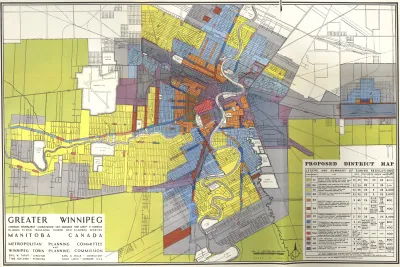Strict separation of uses may be an inefficient way to zone dynamic modern cities.

Scott Beyer argues that current zoning codes impede the adaptive reuse of buildings that used to house offices and large retail, stifling a major potential source of supply that could feed the rising demand for industrial warehousing and residential uses. "Reforming such laws will be crucial for cities that want to stay economically dynamic and avoid the scourge of empty buildings," Beyer writes.
"The Wall Street Journal reports that lending for offices has plummeted to 35 percent of 2019 figures." Meanwhile, "[c]onventional retail faces similar trends. Moody’s predicted that retail vacancy nationwide could be as high as 12 percent in 2021 (it was already 10.6 percent for the first quarter)." But despite the "boom in demand for warehouse space" and rising demand for affordable urban housing, most zoning codes "still require that prime ground-level building space be reserved for increasingly obsolescent office and retail uses."
Communities have pushed back on proposed warehouse facilities. "[E]xamples of hostility to Amazon’s last-mile fulfillment warehouse centers have occurred in Denver, Boston and Seattle, while in central California, opponents of a Walmart distribution center called the project a threat to public health due to truck emissions." Beyer counters that "pushing these warehouses far from population centers will worsen the environment by increasing vehicle miles traveled."
Beyer goes on to discuss "perhaps the biggest zoning-caused distortion in modern real estate: housing. Everything about this sector speaks to scarcity," a problem which he partly attributes to "restrictive zoning laws that stifle new housing projects." Beyer suggests changing zoning codes to "allow empty office and retail spaces to be converted into housing," but also poses a broader question of whether land should be zoned by use at all. While land use zoning can provide an important buffer between residential areas and dangerous industrial uses, for example, strict separation of uses may be an outmoded way of zoning for the "ever-evolving" uses of modern cities.
FULL STORY: Modern Zoning Is Incompatible With Modern Needs

Analysis: Cybertruck Fatality Rate Far Exceeds That of Ford Pinto
The Tesla Cybertruck was recalled seven times last year.

National Parks Layoffs Will Cause Communities to Lose Billions
Thousands of essential park workers were laid off this week, just before the busy spring break season.

Retro-silient?: America’s First “Eco-burb,” The Woodlands Turns 50
A master-planned community north of Houston offers lessons on green infrastructure and resilient design, but falls short of its founder’s lofty affordability and walkability goals.

Test News Post 1
This is a summary

Analysis: Cybertruck Fatality Rate Far Exceeds That of Ford Pinto
The Tesla Cybertruck was recalled seven times last year.

Test News Headline 46
Test for the image on the front page.
Urban Design for Planners 1: Software Tools
This six-course series explores essential urban design concepts using open source software and equips planners with the tools they need to participate fully in the urban design process.
Planning for Universal Design
Learn the tools for implementing Universal Design in planning regulations.
EMC Planning Group, Inc.
Planetizen
Planetizen
Mpact (formerly Rail~Volution)
Great Falls Development Authority, Inc.
HUDs Office of Policy Development and Research
NYU Wagner Graduate School of Public Service




























